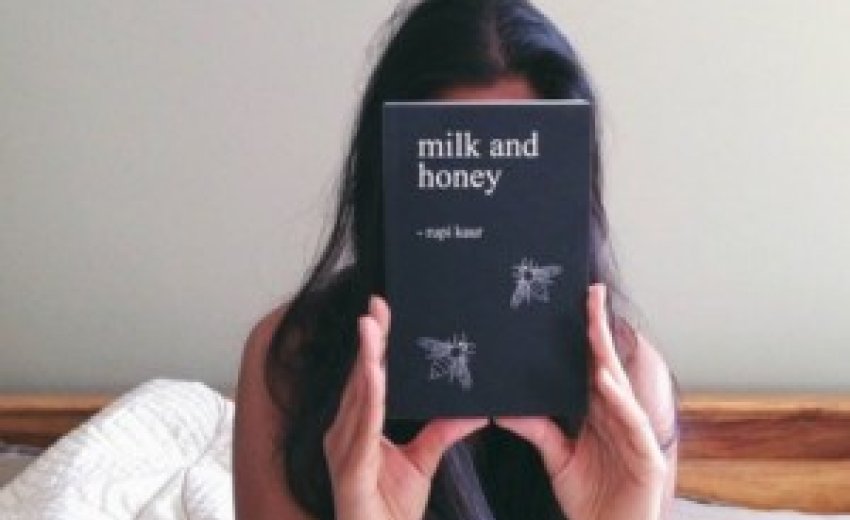
22/01/2015: Rupi Kaur's first book, Milk and Honey is the poetry collection every woman needs on her nightstand or coffee table. Accompanied by her own sketches, the beautifully honest poems read like the everyday, collective experiences of today's modern woman. She experiences love, loss, pain and healing in different chapters of her life. Sometimes she feels as though she has shattered in a million pieces but eventually, she finds strength after picking up the pieces and ultimately survives. Reading the book, is like getting the hug you need on a rainy day, the catharsis you crave after a tragedy.
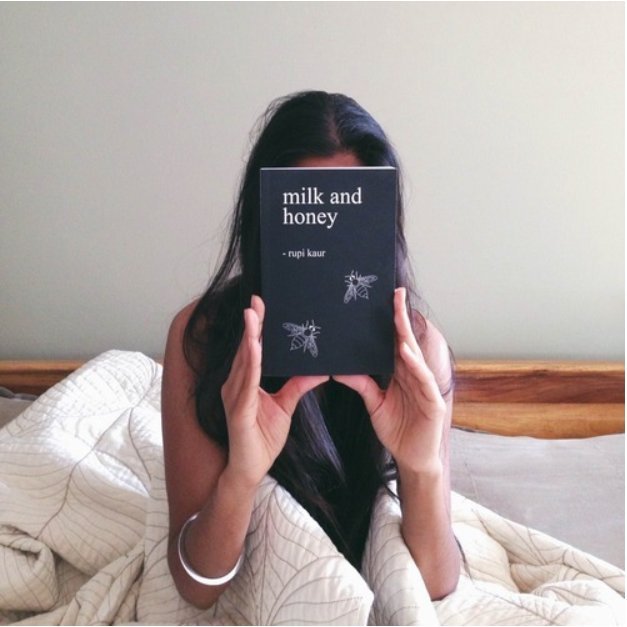
Kaur's book is divided into four chapters that each address a different kind of struggle, culminate in a different kind of growth. By the final chapter, Kaur becomes the sister you never had. I was fortunate enough to chat with the young writer about what got her to this very new and exciting chapter in her life as a published poetess.

For starters, can you tell me a little about yourself?
I write verses, prose, and poetry. I grew up reading everything I could get my hands on. I was moved by the ability of books to pull one out of their reality and into someone else's. I thought it was the most powerful thing. And I think that's why I've been driven to write. I have this terrible habit of feeling too much and I want to express these feelings in the written form. I want to put words to feelings we have trouble putting into words. Like the breath before the kiss, I want to make the mundane beautiful.
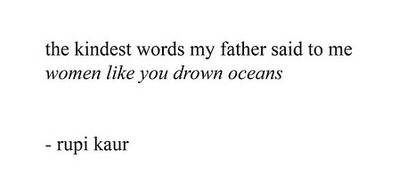
What would you say you draw inspiration from?
Moments. People's stories. Their experiences. And the way those experiences make them feel. The way people hurt. And how badly I want them to heal. I love digging into them and grabbing the root of their emotion. And explaining something so complex in such few simple words.
What is your writing process like?
I try to write everyday. But with school, travelling, and doing shows it's become a lot more difficult. So now I usually write when my body tells me I have to. That sounds a little odd, I know, but let me explain: Usually I know when I have to write because I begin to feel this tug in my heart. It's almost like an anxiety building up in my stomach. This buildup is basically all the ideas my mind has turned into poetry over the past few days because I get inspiration through my interactions with the world. And so when I'm out there, going through my day, the poems are generating themselves and if I'm not writing them out, then they're building up inside me. And if I don't get to a laptop, or some pen and paper right away, it almost feels like they might rot inside of me. And so then I'll go somewhere quiet. With my laptop. And a pair of headphones. The process begins by listening to Qawwalis by Nusrat Fateh Ali Khan. I give myself time to sink into his voice and his words. and then when I'm finally ready, when I feel fully in tune with myself and the emotions I will switch to something instrumental. No words. The words get in the way of the writing. I will open up my text edit document. The same one I always use. And I just begin. Freewriting. Rewriting. Entering. Backspacing. Copying. Pasting. Until I stop. Until it feels like I've gotten out everything that needed to be written and then I will put it away. And come back to it with fresh eyes some other time.
What prompted you to share your writing?
Back in November of 2013, what moved me to share was the idea that I was tired of being quiet. I felt like, for the first time ever, what I had to say was so much more powerful than my fear of what people might think. It was almost as though I had no choice. It seemed more important for me to express solidarity with women going through similar struggles than to continue being that "polite, shy, quiet girl".
What was it like to have your poems published?
To have those poems published was like a dream come true. The way a small child might dream of visiting Disneyland, I dreamed of writing books. Never did I think my poems would become that. But to see the book come to fruition was such a graceful blessing. One that's filled me with so much compassion I'm left softer and kinder for the world.
Your illustrations really add to the poems, did you study art at all or is it just something you enjoy doing?
I haven't had the opportunity to study visual art but it was always my first love when it came to artistic expression. I started drawing and experimenting with visual art when I was 5. We were moving around a lot. Being that my parents and I were immigrants to Canada, I didn't have the most lavish life growing up. So we couldn't take trips and I didn't have the toys the other kids had, so drawing was my playtime (along with going to the library of course). I created the world I wanted to live in on paper.
But once I took up writing in 2013, I stopped drawing all of a sudden. Because I was focusing so much time on improving my writing, I told myself I had no time for art. Eventually, this made me a little upset. The fact that I had left my first love behind cause I had found another passion just didn't seem right to me. So in January 2014, I had an idea. Why not mix the two mediums? And that's how the illustrations came about.
I'd explain the style of illustrations I use with my poems as "childlike, and semi-scribbled". They are simple enough that they don't take away from the poetry. I chose this style because it created juxtaposition with the words. Where the poetry was very serious, very mature, and dealt with some hear wrenching topics, the free-handedness of the illustrations expressed this feeling of innocence. To show that the subject of the poem is experiencing and dealing with things you wouldn't wish upon another person. I'd like to think that when paired together they might almost leave the reader feeling slightly uncomfortable.
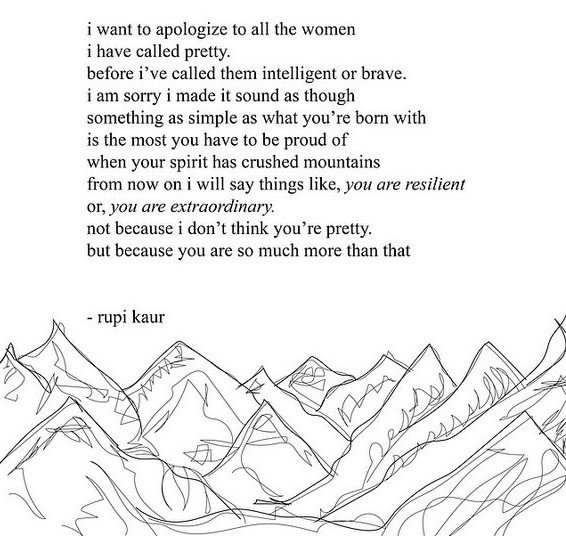
Your poems celebrate being a woman despite the fact that there are many challenges to being a woman. Was this positive outlook something that developed over time or something you always had?
Definitely over time! I wish I always had this outlook. It was weird. Growing up, I naturally embraced who I was but I was always battling with myself. So I spent half my time being proud of being a woman and the other half completely hating it. But I realize now that it wasn't being a woman that I hated. It was being treated in a specific manner for being a woman that I disliked. I had very low self-esteem for most of my life. As is the story for a lot of us. I didn't fit in with the popular girls. My parents didn't allow me to do all the things the cool kids could do. I was quiet, reserved, and at some points, taken complete advantage of simply because of my sex and gender. For a while, in high school, I was so deep into self-hate. When I'd hang out with guy friends, I'd say things like "I just don't get along with other girls." Just so they could think I was cooler, you know? Shamelessly trying to level myself up by putting other women down. God it's so embarrassing to admit, but it's important cause I want people to know about the growth. That I'm not perfect. That I've done things I'm not proud of but the point is I have actively worked to grow. And that's what matters. Are we fixing our mistakes? Are we on a track of forward progression?
Some of the poems cover tougher issues like violence and abuse. Is it harder to write about these things? Is it cathartic?
So very cathartic! It's not as difficult to write about these topics as it is a relief to be able to express them. Writing about certain struggles and battles, although sometimes can pull you into a dark place, seems for me, to be less difficult. Certain topics though, if I dive into them for really long periods of time, do take me into a bad place. And it's important at that point to recognize what those dark emotions are doing to you, and give yourself a break from them. You have to really understand that although certain memories or stories make you sad, you are not sad. Pull yourself out from that emotion and remember that.
What do you hope readers will get out of your book?
Comfort and peace. I want it to be something they always refer back to. Something they read when they need a hug or some understanding and no one is around to understand them. Something they can carry around with them. I want the book to be what I needed around me when I was growing up.
I love the name of the book. What made you settle on it?
To be completely honest, there was no settling. There was no debate or second guessing. I always knew it'd be named milk and honey. In 2013, I wrote a spoken word poem about the Sikh genocide that happened in India in 1984. In the poem, I describe widows of the genocide (those that lost their husbands and entire families to the atrocity) as smooth as milk and honey. From that moment, that metaphor stuck with me. I wrote it everywhere. Doodled it into all my journals. When the idea of a creating a collection of poems to publish came to mind it clicked. I instantly knew the collection would be called 'milk and honey'.
Both milk and honey as edibles are tied in closely with my community. My dad studies and practices homeopathy and Ayurveda medicine. He's a strong believer in both honey and milk as forms of healing. Honey is the one food that does not die. It does not expire. Growing up, he'd always be mixing up almonds or turmeric or gram flower with milk to cure a cough or a cold. Or he'd be mixing some other herbs into honey. These are the holistic practices of my people. Of my motherland. And so I wanted to pay homage to the earth where I first laid my feet.
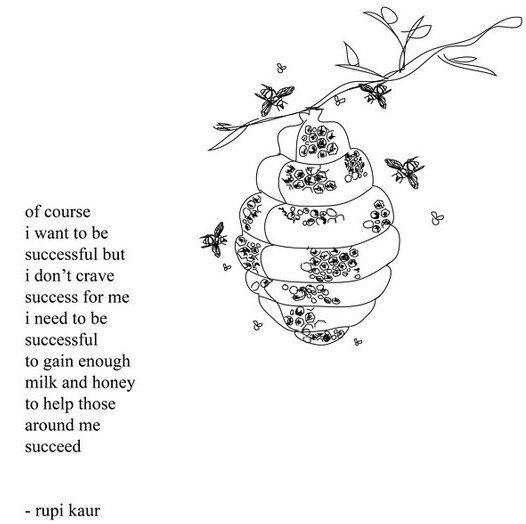
Can readers expect to see more books from you in the future?
Yes of course, if the universe is willing. I have so many ideas growing inside my head. I think time will tell if they will blossom into books. But I truly hope so!
---------------------------------
Related Article:
http://www.sikhnet.com/news/milk-honey-poet-exposes-her-heart

